Charlotte’s grieving parents back social media ban for under 16s at summmit to social media menace
The parents of a Year 7 student who took her life after being bullied sent a powerful letter to a first-of-its-kind summit to combat the dangers teens face online. Follow the social media summit LIVE.
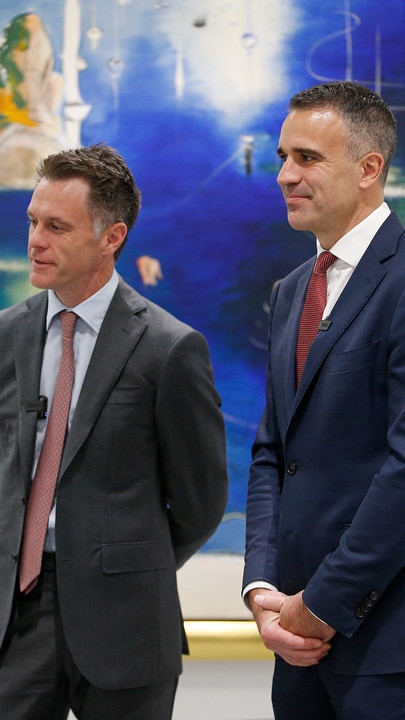
A team of social media avengers are assembling in a first-of-its-kind summit to combat the growing dangers teens face online.
The summit in Darling Harbour will bring together policymakers, academics, and young people to explore the impacts social media is having on young brains and how to protect kids from harm.
The first of its kind Social Media Summit is being jointly hosted by the NSW Government and the Government of South Australia.
LIVE STREAMED: FOLLOW THE SUMMIT
It will feature keynote speeches from San Diego State University psychology Professor Dr Jean Twenge, and Facebook whistleblower Frances Haugen.
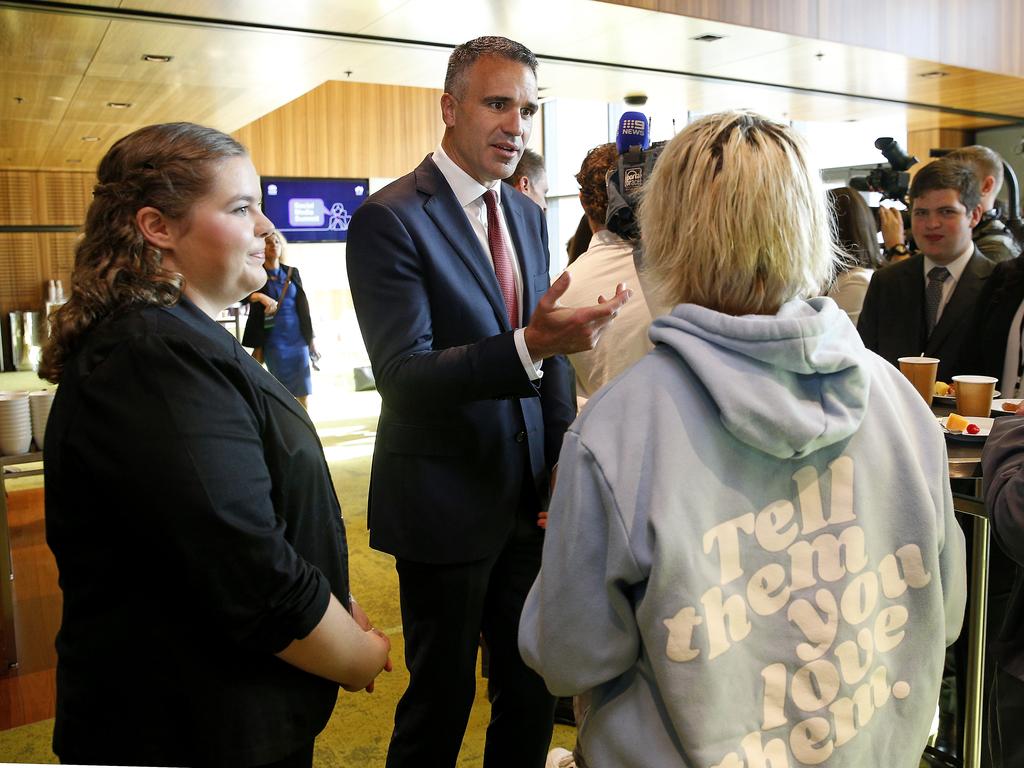
The summit will bring together policymakers, academics, and young people to explore the impacts social media is having on young brains and how to protect kids from harm.
Child psychology experts will discuss how social media is shaping kids’ childhood and adolescence, while Ms Haugen is expected to outline how a lack of oversight and accountability from big tech companies has harmed children worldwide.
Minister for Youth Rose Jackson and the Advocate for Children and Youth Zoe Robinson will lead a workshop of youth delegates.
‘LIFE LOST BEFORE IT BEGAN: CHARLOTTE’S PARENTS’ PLEA
The parents of a Year 7 student who took her life after being bullied have sent a powerful letter to the summit.
Charlotte’s parents backed calls to raise the age to 16, addressing the summit via a powerful letter read by radio presenter and co-founder of the 36 Months campaign Michael ‘Wippa’ Wipfli.
The first day of the NSW and South Australian governments’ social media summit is being held one month since the 14-year-old student at Santa Sabina College in Sydney took her own life after being bullied — including over social media.
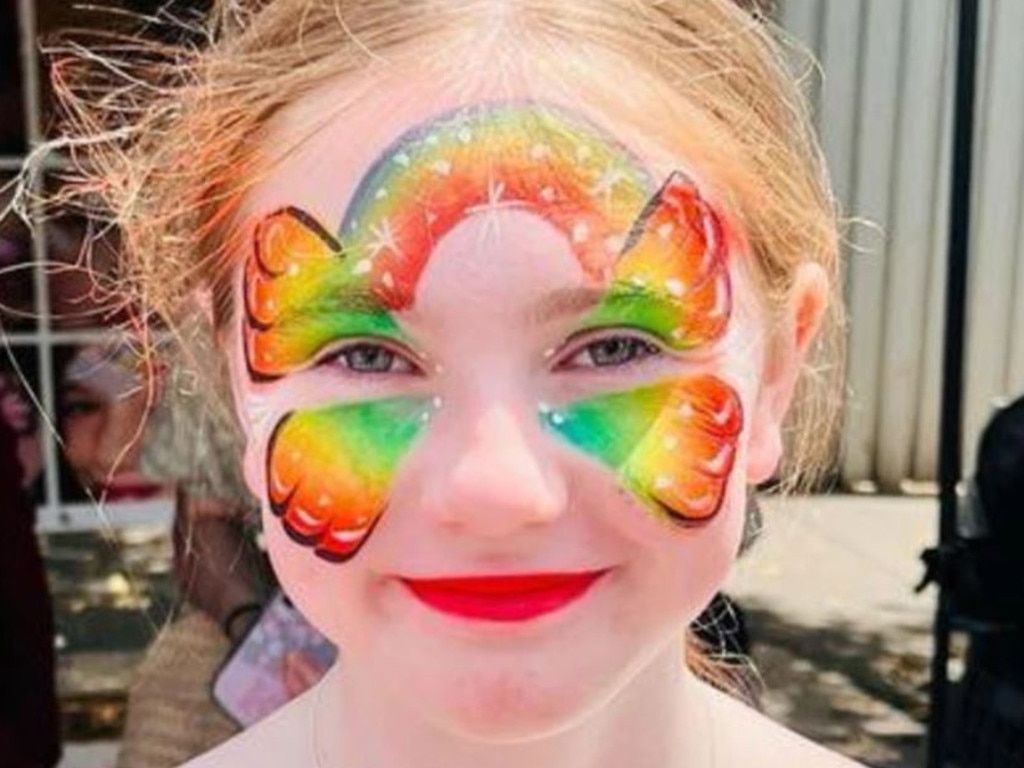
“She is no longer here,” Charlotte’s “forever and always” mum, Kelly, wrote.
“A little girl’s life lost before it began. A mother and father without a daughter, siblings without a sister, a family unable to reconcile their grief, a community in distress.
“So many lives affected by comments made by children too young to understand the effects of their actions, and the impulse mistakes carried out by some too upset and too young to understand the finality of their decisions.
“For anybody doubting the harmful effects social media has on our young people, these platforms are always on — young people are drawn in and addicted to them.
“With no refuge, they come home through the door, and no way of shutting the world’s cruelty out - it’s right there in their pockets.
“For anybody doubting the harmful effects of social media on our young people, the love of my life is gone.
“Please raise the age of social media to at least 16 — 36 months could change a lifetime.”
PARENTS, EXPERTS SPAR AT SUMMIT
The Social Media Summit spiralled into heated debate on Theusday afternoon as Heads Up Alliance founder and father of five Dany Elachi sparred with digital wellbeing expert and mum Dr Joanne Orlando onstage during a panel aimed at parents.
Mr Elachi, a fervent supporter of raising the age, confronted Dr Orlando over her position that a ban on social media for under 16-year-olds won’t work, and instead governments should be prioritising online education.
“If we did start to look at when is a suitable age … I would need to investigate that more,” Dr Orlando said.
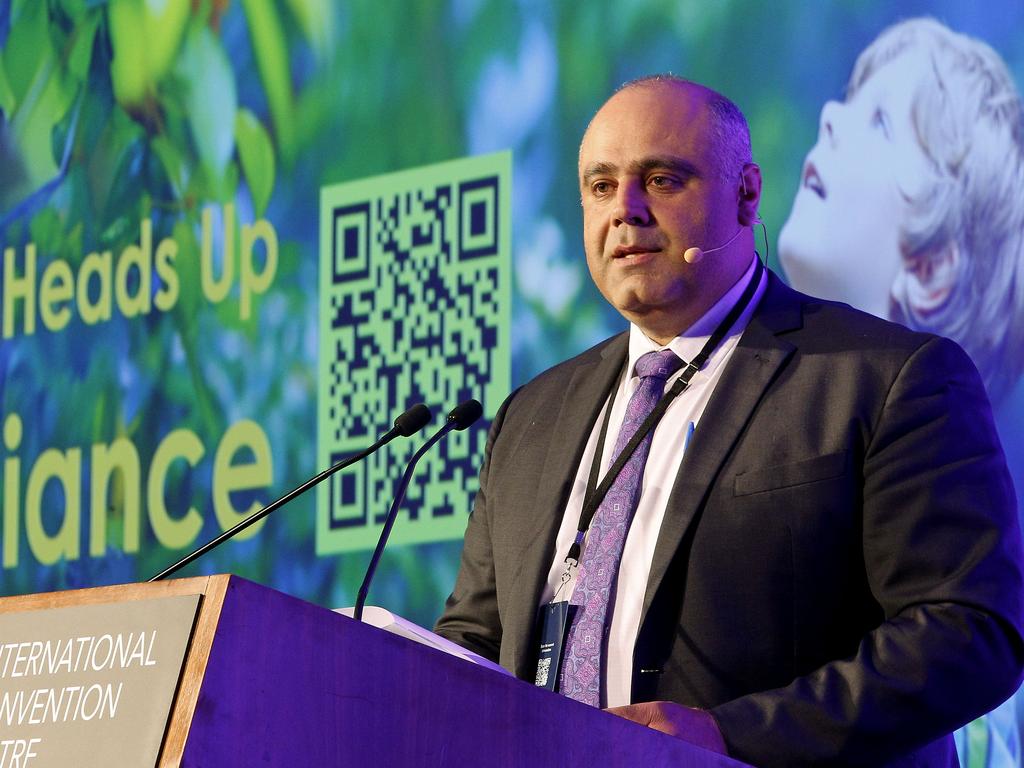
“These are our children, and working out the best age isn’t something that’s easily done.”
“Because they are children, we should err on the side of caution,” Mr Elachi hit back.
In his introductory remarks, Mr Elachi delivered an impassioned call to Prime Minister Anthony Albanese to regulate social media in line with alcohol and tobacco by raising the age of access not only to 16, but 18 years old.
The Heads Up founder delved into his own regrets over purchasing his then 10-year-old daughter a “pocket-sized addiction machine”, and hit back at experts who have opposed legislating a ban.
“When my eldest daughter Aalia, now 15, was just a toddler I was among the first to fall for big tech’s spin: that a shiny new iPad and the new generation of apps that came with it – all that magical swiping, pinching, tapping – represented the cutting edge of children’s entertainment and education,” he admitted.
“I’d like to apologise to Aalia for that.”
Mr Elachi commended federal Opposition leader Peter Dutton’s “bold and decisive” commitment to raising the age to 16 if elected, and said parents are waiting “with great anticipation” to see the details of Mr Albanese’s plan.
“I would challenge the Prime Minister to do better than Peter Dutton, and to legislate to 18 years,” he said.
“All over the world, we are awakening and reaching similar conclusions, and 13 is being exposed as an absolute travesty.”
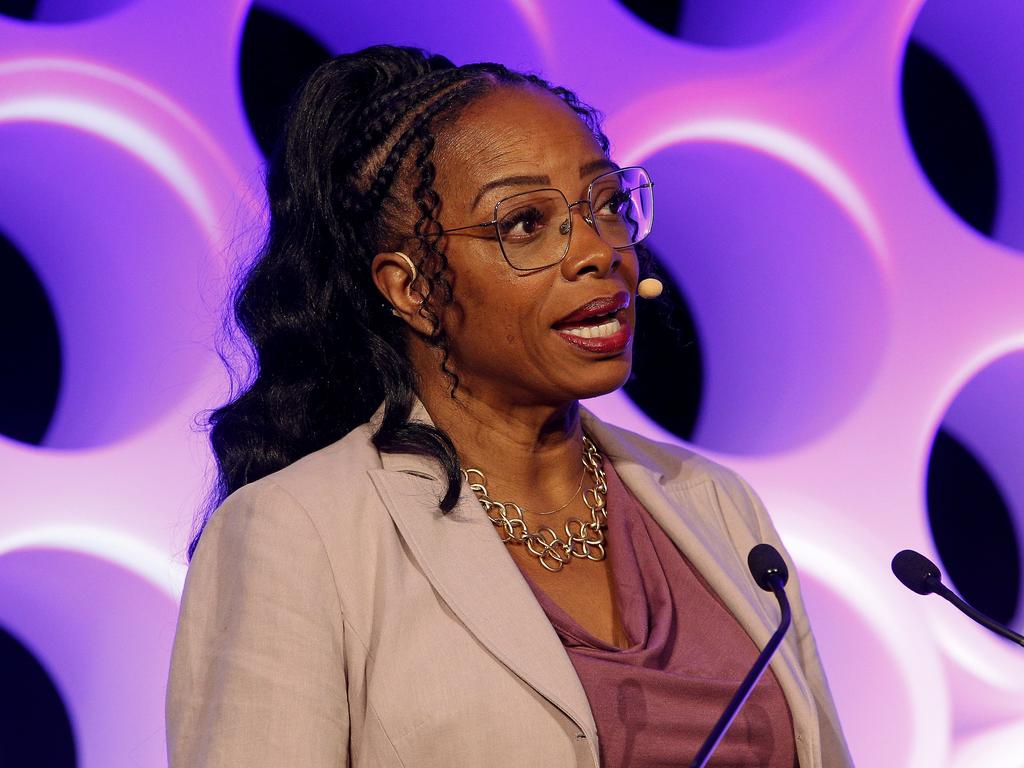
AGE LIMIT ‘NOT UNWORKABLE’
The state Premier who first proposed a legislated social media age limit says he is “more than happy” to ban kids under 16 from the platforms, in line with The Daily Telegraph’s Let Them Be Kids campaign.
South Australian Premier Peter Malinauskas had originally called for kids under 14 to be banned from social media, with 14 and 15 year olds requiring parental consent to join.
On the sidelines of a social media summit in Sydney, Mr Malinauskas has now backed a consistent limit of 16.
“I’m more than happy to see a flat rule being applied from 16 for everyone,” he said.
“I think consistency matters across the country.”
Earlier, the social media summit heard that kids aged between 13 and 15 are most at risk of harm.
NSW Premier Chris Minns dismissed the suggestion that an age limit would be unworkable.
“Do we really believe that the richest, most powerful technology companies in the entire world … are unable to tell what age you are? It’s ridiculous,” he said.
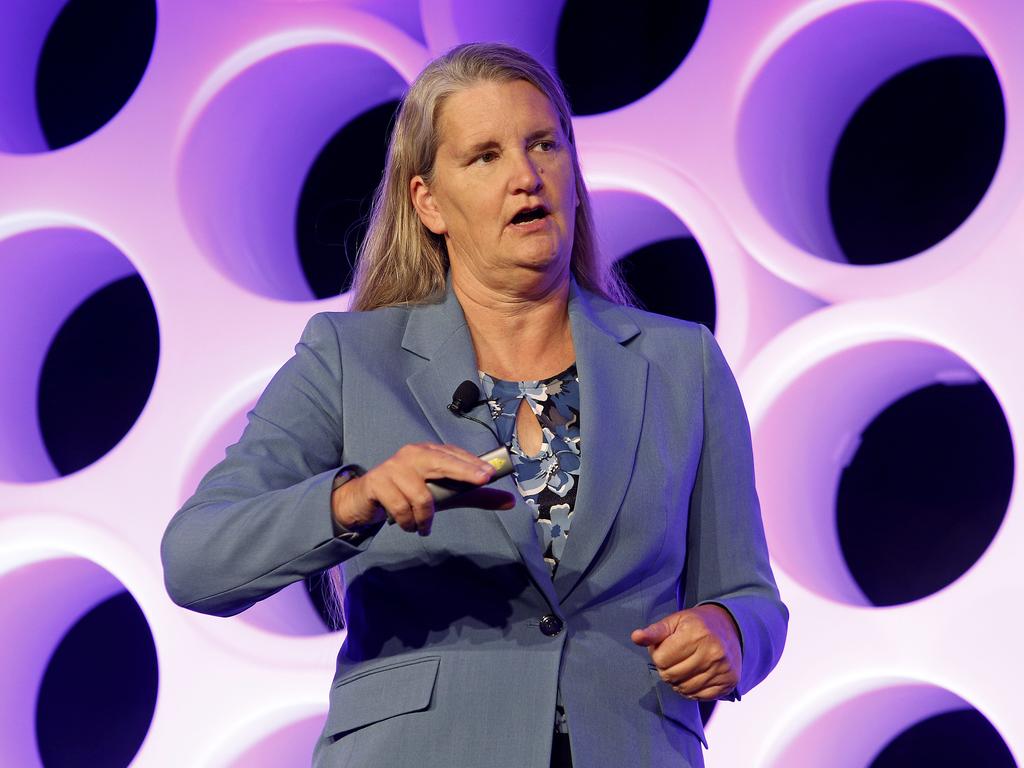
DISTURBING US TREND ECHOED HERE
An American academic who has published more than 190 papers examining the link between social media and youth mental health has backed calls to raise the minimum age to 16, amid concerns those aged between 13 and 15 are the most vulnerable.
Social media summit keynote speaker Dr Jean Twenge, Professor of Psychology at San Diego State University in the US, revealed that disturbing trends in her home country are echoed in Australian data.
Emergency room admissions for self-harm quintupled among 10 to 14-year-olds between 2001 and 2022, according to the US Center for Disease Control’s data.
Meanwhile Australian figures also show the number of teenage girls hospitalised for self harm has almost doubled in the same period.
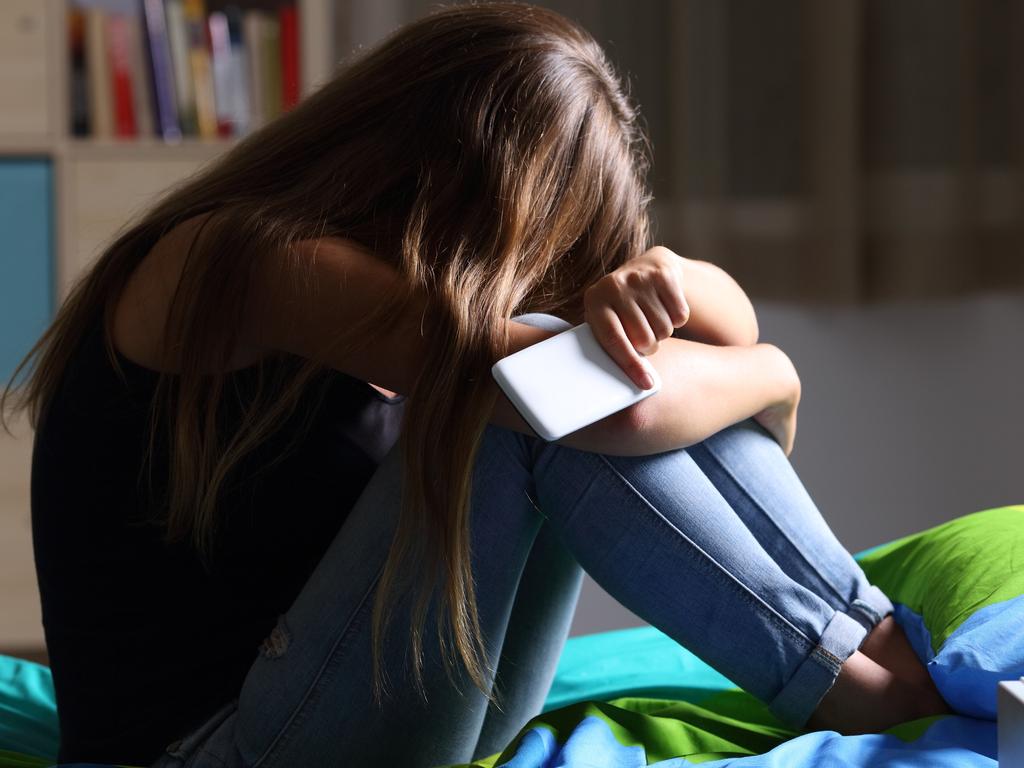
Dr Twenge said while some psychologists dismiss the statistical correlation between social media use and poor mental health as “small”, in reality “heavy” users of social media are between 40 and 200 per cent more depressed than “light” users.
“The folks who dismiss this as too small are dismissing a lot of problems for public health.”
The author and academic said in finding solutions to the crisis, governments have a huge responsibility to regulate the platforms – and setting a legislated minimum age would be “a game-changer” for parents.
“What parent or educator or developmental psychologist said, 13 — right at the beginning of puberty — that is the best time to introduce social media? Of course, it’s not,” Dr Twenge said.
“That’s also where we see the strongest links to depression with social media use, it’s also where we see the biggest increases in self harm and the biggest increases in depression.
“We … have to work on changing the norm.”
‘DON’T JUST BLAME SOCIAL MEDIA’
But in stark contrast to Dr Jean Twenge, officials from NSW Health said a “significant increase” in psychological distress has to be considered alongside “contemporary pressures” — and refused to blame social media as the defining factor.
NSW Chief Health Officer Dr Kerry Chant said factors contributing to the increased distress among children and young people since 2013 include climate change and economic uncertainty, “issues lingering from the experiences of young people during the pandemic” and “concerns about the current levels of global conflict”.
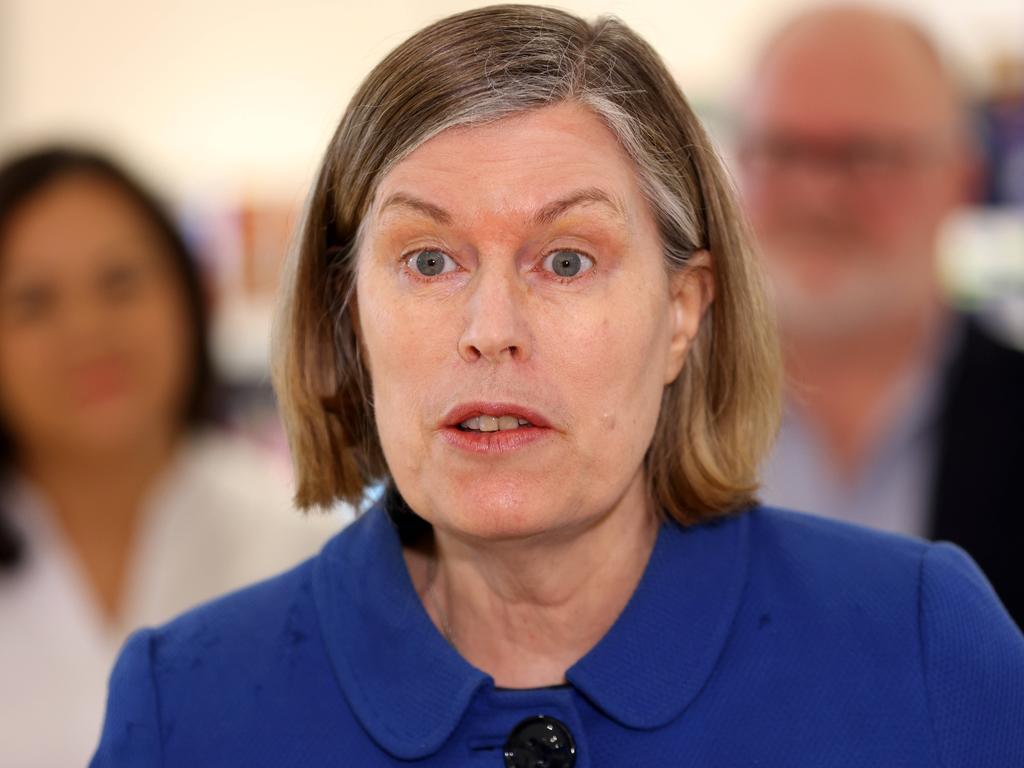
Chief psychiatrist Dr Murray Wright said health authorities “are not currently in a position to make evidence-based statements” attributing the cause of mental ill health in young people to social media.
“We’ve spent 20 years trying to get people to not feel shame when they experience mental ill health,” Dr Wright said.
“I think there’s an element of success that sits in some of those figures.”
NSW Health officials also indicated their “strategic direction” assumes age restrictions will apply to children up to the age of 15.
“Relying on legislated restrictions alone does not equip people to develop the necessary skills to safely engage with social media throughout their lives,” Dr Wright said.
WE MUST LET THEM BE KIDS
Kids’ access to social media must be regulated to protect their “optimism and infectious youthfulness,” South Australian Premier Peter Malinauskas has told the Social Media Summit.
The social media summit, hosted by the SA and NSW government, comes after News Corporation’s Let Them Be Kids campaign called for legislation to keep children off social media until they reach 16.
Mr Malinauskas was the first state leader to call for mandatory age limits on social media.
The SA Premier said that legislating a minus age will “arm not just young people, but also parents, (and) society writ large, with the tools that can allow us to implement a clearer path (and) a more positive definition of what healthy relationships can look like.”
“We have the power to do something that is powerful and meaningful. We have the capacity and the ability to ensure that young people and future generations are able to harness the good of social media, but also dispense with the bad,” he said.
Mr Malinauskas has called for legislation to ban kids under 14 from social media, and require 14 and 15 year olds to get parental consent before they can get an account.
NSW Premier Chris Minns told the summit that kids who spend more time on social media are more likely to suffer mental illnesses.
Mr Minns has also backed the Let Them Be Kids campaign calling for a mandatory minimum age.
“What we are here to do is to make sure this technology is working for us, rather than us working for the technology,” he said.


